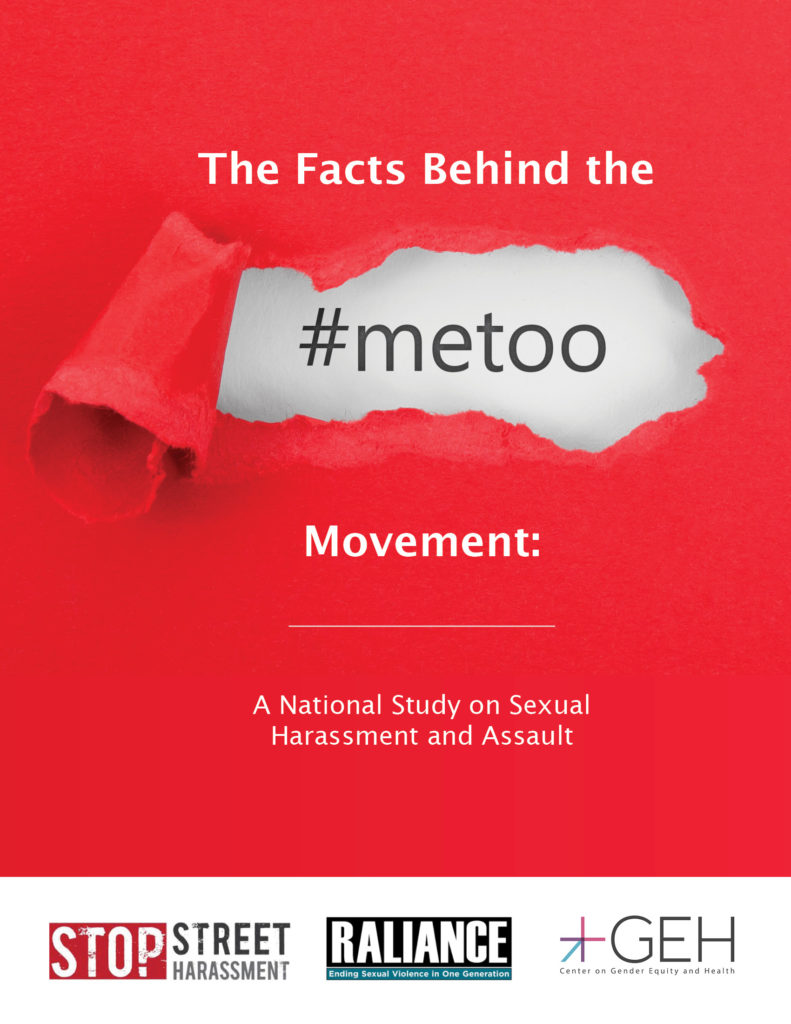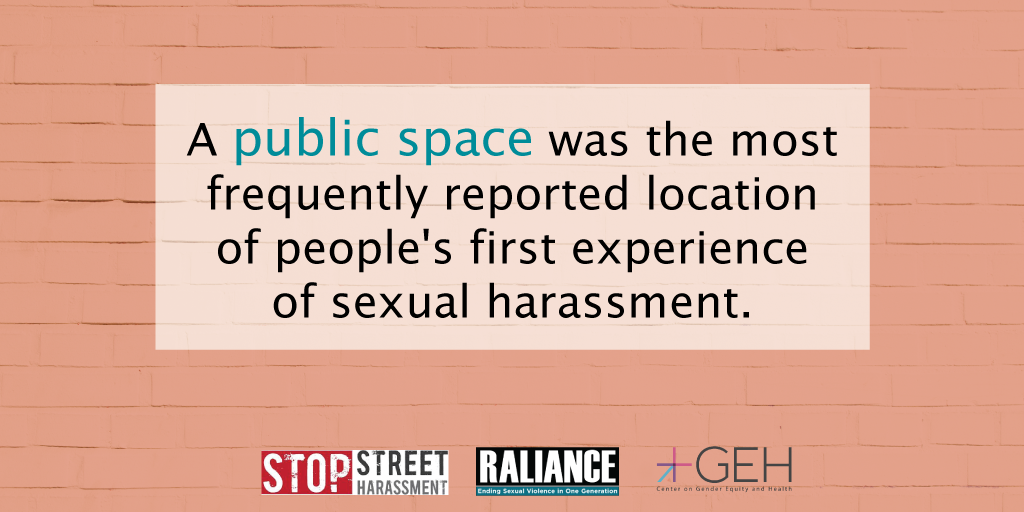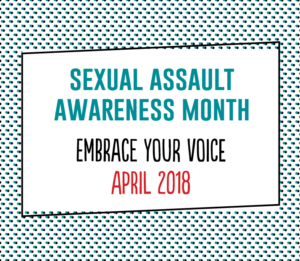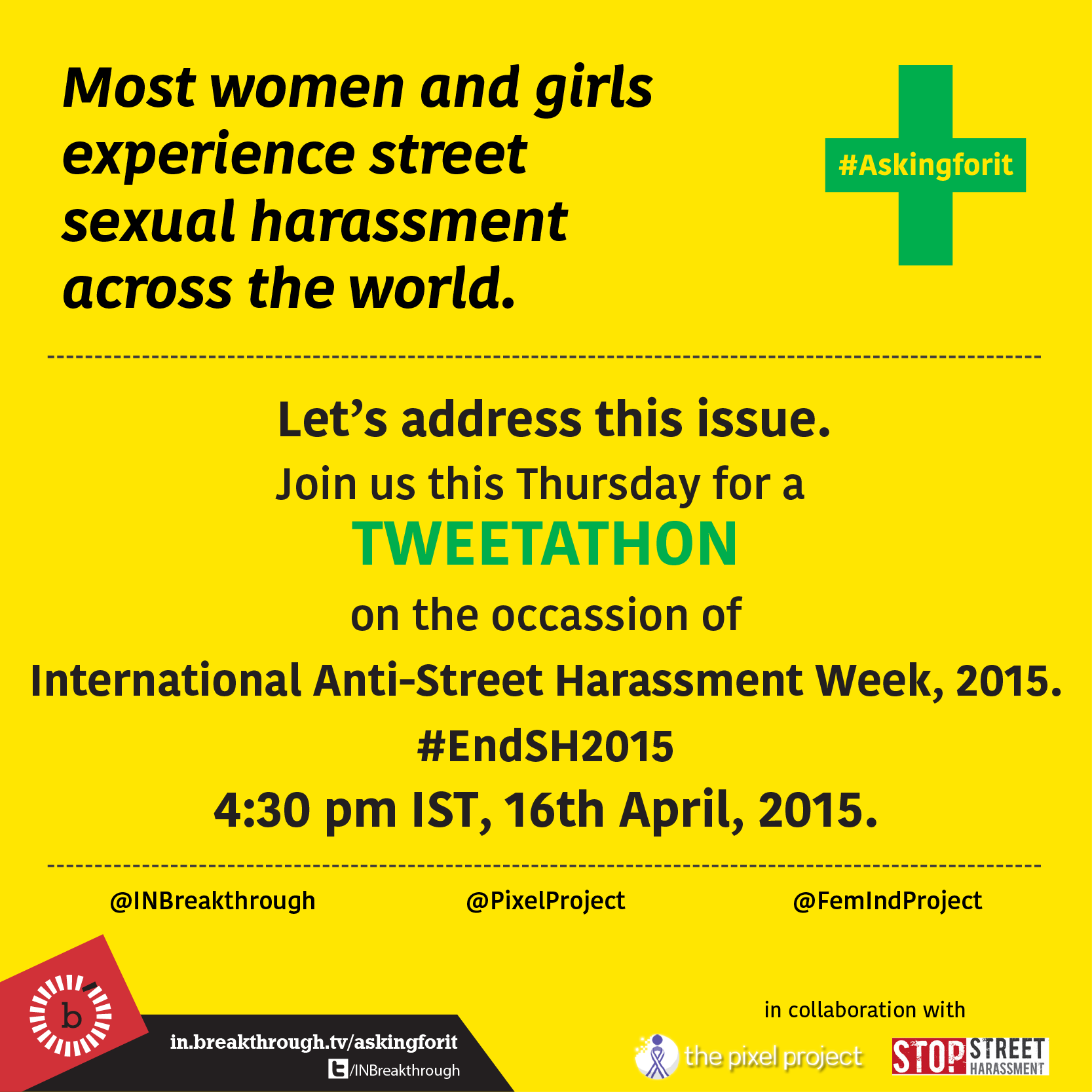By Julie Patrick
The #MeToo movement has been powerful – increasing visibility and giving strength to survivors while exposing behaviors that are troublesome or abusive. Too often as a society we have ignored these behaviors, excused, and normalized them while silencing survivors. We have been a part of the problem because we did not speak up – not as individuals, not as companies, not as industries or institutions. And that must stop. International Anti-Street Harassment Week is the perfect time to interrupt and challenge behaviors that are disrespectful. We can prevent harm.
 It’s time to look out for each other
It’s time to look out for each other
Understanding the prevalence of sexual harassment and assault in public, private, and online spaces helps us shape prevention strategies. That’s why Raliance, a national initiative of leaders working to end sexual violence in one generation, teamed up with Stop Street Harassment to gather facts behind the #MeToo movement.
In our national study on sexual harassment and assault, we learned that 81% of women and 43% of men reported experiencing some form of sexual harassment and/or assault in their lifetime. Among those, 57% of women and 42% of men said their first experience occurred by age 17. In addition to young people, women with disabilities and men in socially marginalized groups experience high levels of sexual harassment and assault. This includes Hispanic men, men with disabilities, men living below the poverty level, and gay and bisexual men — in addition to men in rural areas.
It’s time to reclaim our public spaces

Sexual harassment takes place across a range of locations, but the most frequently listed location is a public space. And we can reclaim our public spaces when we all embrace our voice. We know that young people and socially marginalized folks are experiencing sexual harassment in public spaces most frequently. Our findings show us that sexual harassment and assault are abuses of power, disrespect, and disregard for human dignity. When we look out for each other, we challenge these behaviors and their root causes. One of the core values we can all share is the dignity of all people.
You can be a good bystander by showing up
Remember that your age, race, or gender may make it safer for you to speak up and act. When you witness a concerning situation, you can disrupt it. Remember every situation is different, and there are many ways you can respond. Disruptions and interruptions can be as simple as asking the harasser for directions or striking up a conversation with the person being harassed. If you don’t feel safe, contact the police or involve people around you to help. When you hear something, say something – being direct and honest that these comments or actions are not acceptable reinforces that they won’t be tolerated. You can tell someone their “joke” isn’t funny.
 This is also important in our online interactions. Sexual harassment and assault are never the survivor’s fault. That’s why it’s important to believe and support survivors. Reinforcing these messages online when you see concerning posts helps shift the accountability from the person experiencing the harassment or abuse to the person who committed the abuse.
This is also important in our online interactions. Sexual harassment and assault are never the survivor’s fault. That’s why it’s important to believe and support survivors. Reinforcing these messages online when you see concerning posts helps shift the accountability from the person experiencing the harassment or abuse to the person who committed the abuse.
We are in this together!
Enforcing the behaviors we want to see will help us create a safer world. Everyone deserves to be treated with respect; no one should experience sexual harassment or assault. You can Embrace Your Voice this April as part of Sexual Assault Awareness Month! Learn more tips for being a good bystander!
Julie Patrick is the National Partners Liaison for Raliance and a staff member at the National Sexual Violence Resource Center. Prior to this, Julie worked for over a decade in the Family Advocacy Division at the National Center for Missing & Exploited Children.


